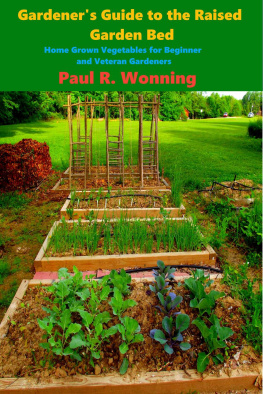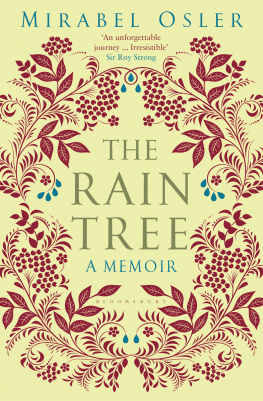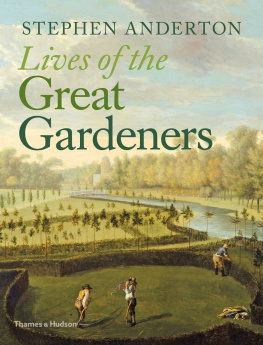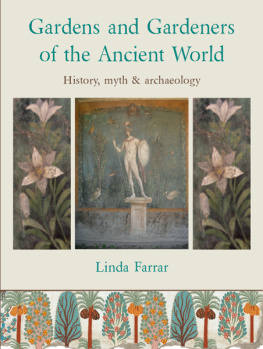Osler - A Breath from Elsewhere: Musings on Gardens
Here you can read online Osler - A Breath from Elsewhere: Musings on Gardens full text of the book (entire story) in english for free. Download pdf and epub, get meaning, cover and reviews about this ebook. City: London, year: 2012;1997, publisher: Bloomsbury Publishing;Bloomsbury Paperbacks, genre: Detective and thriller. Description of the work, (preface) as well as reviews are available. Best literature library LitArk.com created for fans of good reading and offers a wide selection of genres:
Romance novel
Science fiction
Adventure
Detective
Science
History
Home and family
Prose
Art
Politics
Computer
Non-fiction
Religion
Business
Children
Humor
Choose a favorite category and find really read worthwhile books. Enjoy immersion in the world of imagination, feel the emotions of the characters or learn something new for yourself, make an fascinating discovery.

- Book:A Breath from Elsewhere: Musings on Gardens
- Author:
- Publisher:Bloomsbury Publishing;Bloomsbury Paperbacks
- Genre:
- Year:2012;1997
- City:London
- Rating:3 / 5
- Favourites:Add to favourites
- Your mark:
- 60
- 1
- 2
- 3
- 4
- 5
A Breath from Elsewhere: Musings on Gardens: summary, description and annotation
We offer to read an annotation, description, summary or preface (depends on what the author of the book "A Breath from Elsewhere: Musings on Gardens" wrote himself). If you haven't found the necessary information about the book — write in the comments, we will try to find it.
Mirabel Osler attempts in this work to take the reader beyond her own garden, offering encouragement to all gardeners, especially novices, to ignore books and try whatever appeals to them.
A Breath from Elsewhere: Musings on Gardens — read online for free the complete book (whole text) full work
Below is the text of the book, divided by pages. System saving the place of the last page read, allows you to conveniently read the book "A Breath from Elsewhere: Musings on Gardens" online for free, without having to search again every time where you left off. Put a bookmark, and you can go to the page where you finished reading at any time.
Font size:
Interval:
Bookmark:

For Michael
I wept, as I remembered, how often you and I
Had tired the sun with talking and sent him down the sky.
This book grew out of a chance remark made to me by a librarian. She spoke of the sad sight of elderly people browsing among the gardening shelves on wet afternoons, desperately looking for answers to the question of how to cope now that they were the sole owners of gardens they had inherited.
The comment, vivid and too near for comfort, gave me the inspiration for the book. A sort of alpha-omega of gardening. It begins with people who have never gardened before and who, though tempted, are still hesitant, and continues with others who have already launched themselves into the unknown region but have not yet found their bearings. The last chapter is for those at the end of their gardening lives: for widows and widowers, partners and lovers, who may be struggling to keep the garden going but who cant release themselves from it without being overwhelmed by guilt.
The title, A Breath from Elsewhere, is intended to make it quite clear that the book is diametrically at odds with practical gardening books dealing with classic or formal gardens, small, winter, container and scented gardens, et al. These are full of photographs, sound advice, expertise and useful facts. Here are neither pictures nor know-how.
There are no photographs, because most gardening books with pictures are not physically readable. They cant be held comfortably to be read on a train, in bed or in the garden. They need to be propped up by a couple of bricks on a table. I do read books like these sometimes, but supporting them on the dining table isnt exactly what I relish at nightfall. I know that garden inspiration can be gained from page after page of coloured photographs, especially when one is inexperienced and searching for incitement, but they undervalue the written word. No one reads the text in these books, only the captions. Soon well be able to identify an author by reading a caption.
My first chapters may sound naively unsophisticated to gardeners who have gone way beyond them, but they are drawn from my own experience of starting a garden. I can recall the force with which uncertainties were thrown up amid all the felicity.
My knowledge of gardening is meagre, yet however often I reiterate this boring fact, people wont believe me. Sometimes Im asked to design a garden, but to do that you need your wits about you. First catch your wits; mine deserted me years ago. I cant remember names either of people or plants but because I write books that are rooted in gardens, people think I know what Im talking about. But I dont. Any advice I give is subjective. I write only from limited experience, gained from making one garden with my husband in the country, and one on my own in a town. Thats all. But these two undertakings have led me all over the place, through labyrinthine conjectures to chasing after plant collectors, flowers in art, textiles, tiles, poetry and God knows what else but never, absolutely never, towards the cold frame or into a propagating shed. The loss is mine, but thats the way it happened. Gardens took me on in a manner over which I had no control. I can give no foolproof solutions, but I can tell you what worked and what didnt in these two gardens, and hope, by passing on my successes and failures, that some bits may be applicable to you.
More and more people are making gardens. I dont know who counts them, but annually the figures are rising, which must say something about the human spirit. And it isnt just the obvious people the competitive or the discontented; the middle-aged, the retired or separated; the thwarted painter or the frustrated genius. Many new gardeners are young. They are people with jobs, small children or part-time work; people who live in cities or who are commuters. They are the thousands who need breathing space and a place for creative licence all their own. Often leading hectic lives, they yet make time for this other dimension that is unique, personal and financially unremunerative.
It seems lamentable that, despite this interest in gardens percolating through to younger and younger people, children arent given more exposure to the world of plants. Children react with uncluttered spontaneity; they can look, touch, breathe and smell flowers with none of the preconceptions and cerebral assessments that beset us. The intricacy of a plant seen through a magnifying glass has as dynamic an effect on a childs imagination as reading about Alices discovery of a bottle labelled Drink Me. Children are still young enough to be confounded. Yet how many have a chance to feel the woolly leaves of Lambs tongue (Stachys lanata), or to discover through touch that a poppys scarlet petal feels as fine as silk between their fingers? A childs wonder is instantaneous on finding that what look like prickly stems on a robinia are really as soft as the velvet on the antlers of young stags.
Certain flower scents imbibed when one is young are fixed unconsciously and indelibly in the psyche. Years later a smell of primroses, hawthorn, lilac or a certain rose may resurrect instant childhood. And if children arent put off by being asked to do garden chores theres a good chance that theyll want a little piece of ground for themselves, or else that at some much later time in their lives theyll find those early memories have germinated, and the filaments of nostalgia have become as strong as tap roots.
There Are No Right Ways to Make a Garden Only Alternatives
Gardens are refuges. In search of replenishment we retreat to them as to a safe haven. They have none of the threatening attributes to be found in more dramatic escapes: lone voyages, wilderness, deserts or drugs. There is no need to pit your endurance against the elements, to feel challenged or to prove yourself to yourself. Gardens act as a solace and a panacea. With their innumerable qualities we use them in a variety of ways, for inspiration or freedom, for discovery or surrender.
Whether our responses are botanical or visionary, a garden works without the menace of intimidation. By using all five senses we retrieve areas of ourselves that may have been ossified far too long. Outside, tending a garden, an unsought restitution takes place. Considering how we are daily besieged through mass communication by horrors in life that stab us in the heart or the back, then planting a lily may miraculously be all thats needed to bring us upright again. But why, and how? Why do gardens restore a sense of equilibrium in so many ways? What fermentation or elixir of invisible salubrity lurks in the earth, that doesnt exist in the swimming pool, on an historic tour, up a mountain, or between the sheets? Gardens are unique. And under stress at any age, gardening is far more efficacious than running worry beads through your fingers or taking to the bottle.
Practical books are the gardeners Baedeker. Their dead-pan information may be invaluable but they have done nothing to nourish my excesses. At the start, a different sort of book did that: those with misty photographs, of colour in foreign places; pictures where I could recognize flowers or plantings so hideous they cleared my head of any ideas in that direction. But no book, in whatever category, emphasizes the benefit to be gained from visiting gardens, an essential pastime. By merely looking, osmosis occurs and almost subliminally one starts to make judgements. The diversity of gardens can be as overwhelming as it is helpful. Yet visiting must be done at least it must by those of us who are devoid of self-confidence as well as plant expertise. And the more a garden reflects the owners temperament and taste, the more interesting visiting becomes, activating the uninitiated to sort out their own foibles. But goodness, gardens are hell. Once you begin they push themselves, with all their pulsating alternatives, into the forefront of your thoughts until, too readily, you become a predator clutching at every idea.
Next pageFont size:
Interval:
Bookmark:
Similar books «A Breath from Elsewhere: Musings on Gardens»
Look at similar books to A Breath from Elsewhere: Musings on Gardens. We have selected literature similar in name and meaning in the hope of providing readers with more options to find new, interesting, not yet read works.
Discussion, reviews of the book A Breath from Elsewhere: Musings on Gardens and just readers' own opinions. Leave your comments, write what you think about the work, its meaning or the main characters. Specify what exactly you liked and what you didn't like, and why you think so.







